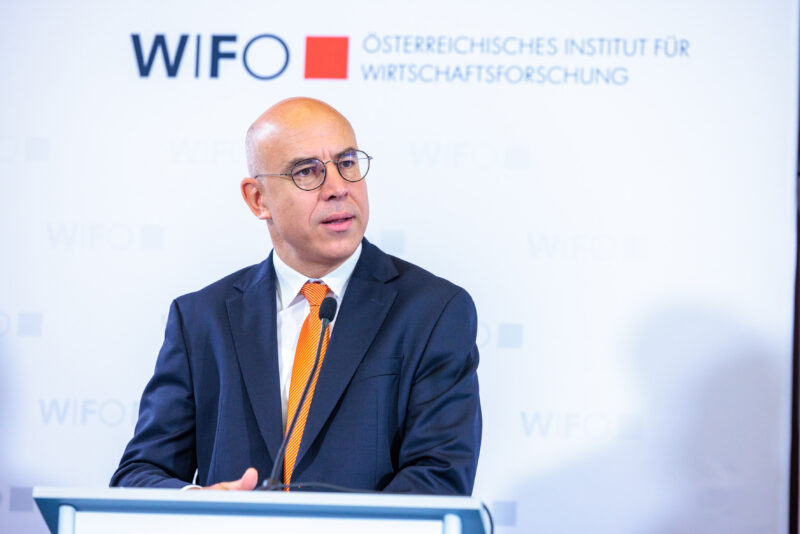
Retail Sales Remain Weak, Business Outlook More Optimistic
There were hardly any signs of an economic upturn at the start of the year. According to current calculations of the WIFO Weekly Economic Index (WWWI) for GDP, the weak development from the previous year is likely to have continued. In January, economic output was down 1.3 percent on the previous year and 1.7 percent in February (December 2023 –2.4 percent).
Business activity in the retail sector was once again subdued in January 2024 (+1.6 percent in nominal terms, –2.3 percent in real terms compared to the previous year) and February 2024 (+0.6 percent in nominal terms, –1.7 percent in real terms, provisional figure). Sales growth was again particularly weak in the non-food sector.
Inflation continues to ease. After falling to 4.3 percent in February 2024 (January +4.6 percent), inflation fell further in March 2024 according to the flash estimate by Statistics Austria: +4.2 percent according to CPI and HICP. It was therefore once again above the euro area average (2.4 percent).
The survey results for Austrian retail companies developed more favourably than for the economy as a whole. Even though there is still a surplus of pessimistic assessments, signalling a weak economic situation (March –6.2 points, February –10.9 points).
The improvement in sentiment among retail companies is evident both in the current situation and with a focus on the coming months. This applies in particular to the sub-questions on their own business activities. Compared to German retail companies, the current survey results of domestic retailers are significantly more positive (March: –12.1 points Austria, –20.3 points Germany).
Domestic consumer confidence has recently risen further (slightly). The slightly lower level compared to German households (Austria –16.6 points, Germany –13.4 points) is the result of a more pessimistic assessment of developments over the next 12 months. This concerns the assessment of their own future financial situation as well as purchases.
Private consumption fell slightly in 2023. The gradual improvement in domestic consumer sentiment last year ran counter to this downward trend. In 2024 and 2025, private household consumer demand is expected to rise again as real disposable household income increases (+1.2 and +2.1 percent respectively). However, the persistently high level of uncertainty among consumers is dampening their willingness to spend, meaning that the savings rate is likely to increase again in 2024.
The current weak economic development is also reflected in the labour market. The number of unfilled vacancies continued to fall in both the retail sector and the economy as a whole and was already 30.6 percent below the previous year's level in the retail sector in March (–18.4 percent in the economy as a whole). Currently, 9,560 vacancies (overall economy 91,973) cannot be filled promptly.
Publications
Please contact

















